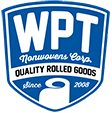Organic Cotton Cultivation
Organic cotton cultivation begins with the planting of non-genetically modified (non-GMO) seeds in soil that has been free of synthetic chemicals and pesticides for at least three years. Farmers use natural methods such as crop rotation, intercropping, and organic compost to enrich the soil and combat pests.Environmental Benefits
- Soil Health: Natural farming methods enhance soil fertility and structure, supporting long-term agricultural sustainability.
- Biodiversity: Organic cotton fields promote a thriving ecosystem of beneficial insects and wildlife.
- Water Conservation: Organic practices often use up to 91% less water than conventional cotton farming, as the soil retains moisture better due to organic matter.
Harvesting and Processing
Once the cotton bolls are mature, they are hand-picked to reduce waste and minimize damage to the fibers. The harvested cotton undergoes cleaning to remove seeds and impurities, followed by a mechanical combing process to align and refine the fibers.Environmental Benefits
- Reduced Pollution: No synthetic chemicals are used in the cleaning and refining processes, avoiding water and soil contamination.
- Low Energy Use: Manual harvesting and mechanical processing require less energy than conventional methods.
Spinning and Knitting: From Fiber to Fabric
The purified organic cotton fibers are spun into yarn and knitted or woven into fabrics. For nonwoven applications, the fibers are bonded using thermal, chemical-free mechanical, or hydroentanglement processes to maintain their organic certification.Environmental Benefits
- Chemical-Free Bonding: Eliminates the need for adhesives or chemical binders, reducing environmental toxins.
- Durability with Sustainability: The resulting nonwoven fabric is durable yet biodegradable, supporting eco-friendly product lifecycles.
Certification and Compliance
To ensure the material remains truly organic, every step of the process is monitored and verified against rigorous standards like the Global Organic Textile Standard (GOTS). This certification covers ecological and social criteria, ensuring not just environmental care but also fair labor practices.Environmental Benefits
- Accountability: Certification ensures the entire supply chain adheres to strict sustainability standards.
- Consumer Confidence: GOTS certification provides transparency, enabling consumers to trust the product’s organic claim.
Organic Cotton Nonwovens Applications
Organic cotton nonwoven fabrics are used in applications that demand safety, comfort, and sustainability. From baby wipes and feminine hygiene products to medical dressings and eco-friendly packaging, their versatility is unparalleled.Why Choose Organic Cotton Nonwovens?
- Hypoallergenic and free from toxic chemicals, making them ideal for sensitive uses.
- Biodegradable and compostable, reducing landfill waste.
- High absorbency and durability, meeting the performance demands of industrial and personal care applications.
Environmental Benefits
When you choose products made from organic cotton nonwovens, you are supporting:- Reduced Carbon Emissions: Organic farming and chemical-free processing emit significantly less CO₂.
- Less Resource Depletion: Efficient water and energy use preserve natural resources.
- Minimal Waste: Organic cotton products are biodegradable and leave no harmful residues.
Why Choose WPT Nonwovens for Organic Cotton Nonwovens?
WPT Nonwovens is your domestic source for organic cotton nonwovens certified by the Global Organic Textile Standard (GOTS) Version 5.0. We were one of the first nonwovens manufacturers to be awarded with this accreditation. Our GOTS certificate covers Organic Ladies’ sanitary products Resin Bonded Nonwoven RB-401-60-W/R. WPT Nonwovens serves high-volume needs, while also being an affordable choice for small niche buyers. Other advantages we offer include:- Ability to provide a sample within 30 days
- Production and shipment of your order within four to six weeks
- Extensive experience in developing nonwoven polyester fabric
- Unsurpassed customer service
- A fully capable manufacturing facility located in Beaver Dam, Kentucky
